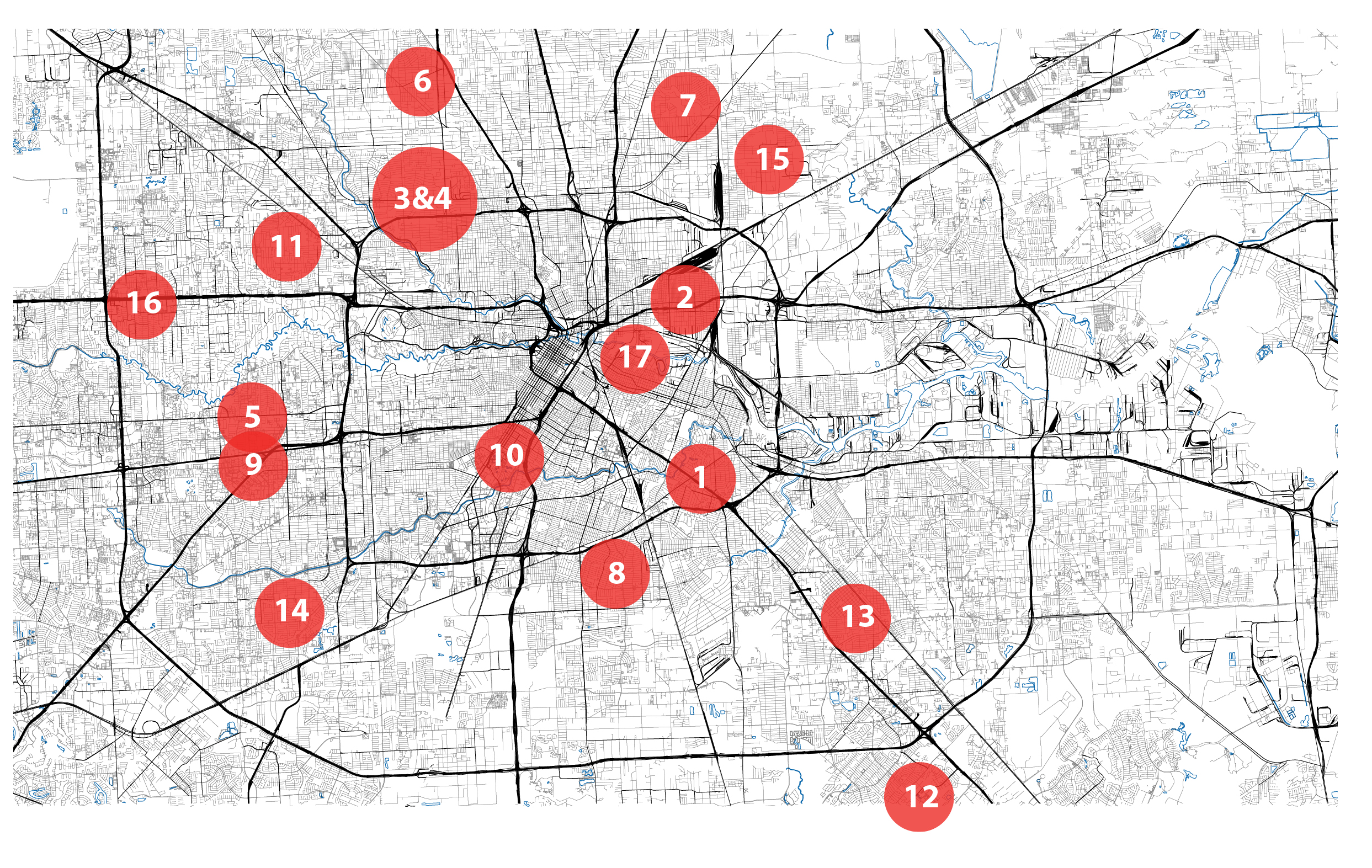We’ve published 4 guides in 5 languages to assist families and individuals continuing to recovery from Hurricane Harvey. Check them out and share them with folks who need them!
Read MoreDisaster Recovery Guides Update
As we near the two year anniversary of Hurricane Harvey, we can’t ignore the fact that families are continuing to recover and rebuild their lives from the devastation this storm wreaked -- and for many, the challenge is made more difficult due to a lack of accurate information available in the language they understand best.
By partnering with the Red Cross and local long-term recovery groups working on the ground in the Gulf Coast, we are helping to get legally-accurate, easy-to-understand information into the hands of those who need it most. We are midway through this project, through which we will produce four Disaster Recovery Guides translated into five languages to be distributed across Houston and Harris, Nueces, and Refugio counties. The Guides will cover four topic areas: flood insurance, renters’ rights, title clearing, and contractor fraud.
Recently, we formed a partnership that will broaden our reach even further. Thanks to a connection from our funder, we were able to begin work with another Red Cross grantee -- a group that believes that everyone should have equal access to information, communication and services that can impact their quality of life and their ability to be independent. No Barriers Communication, based in San Antonio, will translate our four written guides into videos accessible by American Sign Language.
The more people that have access to this important disaster recovery information, the better. We are so happy to work with No Barriers Communication to broaden our reach to include the hearing-impaired! Once the videos are complete, we will host them here on our website -- so please stay tuned for more from the Disaster Recovery Guides project.
Funding for this project provided by:
Community Engagement Report Release
In response to the destruction caused by Hurricane Harvey in 2017, Congress allocated $5.204 billion to the State of Texas for recovery efforts. In a departure from past recovery efforts, the City of Houston was given local control over $1.15 billion of these funds—and a short window of time in which to create the Local Action Plan, which outlines how federal funds will be used. The City of Houston’s Housing and Community Development Department (HCDD) sought to increase the role of community engagement in informing their final Local Action Plan and Disaster Recovery Programs-- its their largest Engagement effort to date. buildingcommunityWORKSHOP was pleased to collaborate with HCDD, the Community Design Resource Center (CDRC), Texas Organizing Project (TOP), Local Initiatives Support Corporation (LISC), and the UT Public Health Department to expand community engagement activities in the disaster recovery process.
Beginning in June 2018, HCDD reached out to local organizations to plan a series of meetings with different groups to understand their issues and expectations, receive recommendations about next steps, and identify potential partners. Then, local and community organizations were contacted to build partnerships for a community engagement process that would inform Houston’s Local Action Plan for the allocation of Community Development Block Grant-Disaster Relief (CDBG-DR) funds and understand the needs of communities prior and after Harvey.
Due to the rapid turnaround desired by the Mayor’s office, the Engagement process took place over the course of six weeks. [bc] and the CDRC worked together to craft a methodology, design interactive activities that would engage diverse communities, facilitate conversations, and build the department's capacity to facilitate and implement community engagement activities. [bc] and CDRC provided support to HCDD and other partner organizations by developing meeting materials, facilitator guides, and conducting facilitator training. See below the city wide meeting locations:
The findings of the engagement process were clear. Houstonians voiced their desire for increased transparency and community participation in the recovery process. Improved drainage and long-term planning for future disasters—Harvey was the third disaster to strike Houston in 5 years—were also priorities.
The Community Engagement Report detailing the methodology was initially prepared as an internal report from [bc] to the HCD Department, but given the lessons learned and reflections included in the report, the City wished to turn it into a public guide for potential use by other cities looking to enhance their Engagement efforts. It was published online in November of 2018—to learn more, we invite you to read the Report in its entirety.
Hurricane Harvey Disaster Recovery Guides
Image Credit Lafayette, TN, February 8, 2008. George Armstrong/FEMA Photo Library
Since Hurricane Harvey, we have been working alongside our partners and residents of communities affected by the storm. Building off our work to empower community members with the knowledge to drive the future of their communities through projects like the Land Use Colonia Housing Action (LUCHA) and the Disaster Recovery Leadership Development program in partnership with the Texas Organizing Project, [bc] will produce a series of graphic Disaster Recovery Guides to aid residents of Harris, Aransas, Refugio, and Nueces Counties in accessing disaster recovery resources to aid them and their families in their recovery, in conjunction with the disbursement of federal funding allocated to these four counties. This project is supported by a generous grant from the American Red Cross.
We look forward to providing further updates on our progress to engage diverse community members throughout this process and to sharing the Disaster Recovery Guides, which will be available in 5 languages, via our website.
To learn more about how you or your organization can get involved with this project, please contact us at inform@bcworkshop.org
Funding for this project provided by:
![[bc]](http://images.squarespace-cdn.com/content/v1/5248ebd5e4b0240948a6ceff/1412268209242-TTW0GOFNZPDW9PV7QFXD/bcW_square+big.jpg?format=1000w)

![The CDRC and [bc] facilitate table discussions at Districts E Community Meeting. Photo: HCDD](https://images.squarespace-cdn.com/content/v1/5248ebd5e4b0240948a6ceff/1548952167625-ABT30Y6TJWNMR4YYRTOX/comm+eng.jpg)


